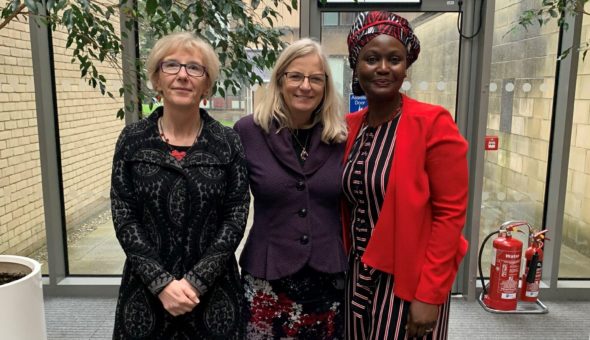This book, due to be published by Routledge in the spring, examines the issues around the achievement gap between children from different socioeconomic backgrounds. This gap is larger in the UK than in many other places, and seemingly implacable; one of the main arguments of the book is that we’re looking in the wrong place for the solution. We know from the research that most of the gap arises from issues outside of school, yet so far, we have concentrated our efforts to narrow the gap on school based practices.
Through an examination of the concepts of social and cultural capital, as well as ideas around race, ethnicity, poverty and school effects, the book argues that the achievement gap is systemic, rather than related only to individuals; to do this, it utilises Gramsci’s concept of hegemony. That constitutes the problem: the book proposes supporting and increasing parental engagement with children’s learning as a good deal of the solution.
One of the main ideas in the book is that we have put up arbitrary barriers around different types of learning, so that we have come to equate education and even learning with “what goes on in school”; this explains why we’ve concentrated our efforts to narrow the gap around schools and also explains why we’ve had less success than one might hope.
Parental engagement with children’s learning (not with schools, but with learning in the home, or at least outside of schools) has the potential to significantly narrow the achievement gap. However, this relies on understanding what that engagement means, and also on avoiding some of the problems that have plagued the field. We need to avoid a deficit model of parents and parenting, as well as an ethnocentric model which sees only one “right” way to parent or to engage. We also need to be wary of seeing “parent” as a synonym for “mother”, and, as much of the literature does, assuming that we can continue to base parental engagement on mother’s unpaid, unacknowledged work.
The book concludes by offering suggestions for the way forward for practitioners, policy makers and researchers.
The book is by no means the final word in this field, as there is still a very great deal to learn and do, but I hope it will be a useful stepping stone.
Respond


